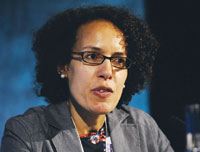
Social care professionals’ support for personalisation has plummeted and only a minority now believe that personal budgets will benefit users in the medium to long-term, Community Care’s latest annual personalisation survey, commissioned by Unison has revealed.
The fall in support has been driven by the impact of public spending cuts on the agenda, which has resulted in the value of personal budgets being slashed.
In 2009 two-thirds of respondents to Community Care’s personalisation survey believed that personal budgets would be of benefit. The 2011 results show this has dropped to 41%.
“People still believe in personalisation, but it’s increasingly difficult to make it happen,” said Helga Pile, Unison’s national officer for social care. “When service reviews of personal budgets are taking place, there’s a very clear expectation on people to cut the amount of money provided and that’s not what people want or expect.”
The adverse impact of cuts was highlighted in other answers to our survey:
● 83% said cuts to adult care budgets in their areas would impede personalisation.
● Almost half (48%) thought that personal budgets were not of sufficient value to help users meet their needs.
● 37% disagreed that the resource allocation system in their area effectively allocated money to people in line with their needs – 47% agreed.
● 33% said resources had been the greatest barrier in making progress with implementing personalisation.
The government estimates that councils with social services responsibilities in England will have cut their budgets by 4.7% this year, and the Association of Directors of Adult Social Services has found that councils have made savings of £1bn in adult social care for 2011-12.
“The cuts could finish personalisation off,” said Ruth Cartwright, manager for England at BASW – The College of Social Work. “Personalisation will still be espoused, but it will be lip service only.”
However, a Department of Health spokesperson claimed councils should be able to protect services while also rolling out personalisation through an “ambitious programme of efficiency”, given the funding settlement.
Community Care’s research also identified concerns over the extent to which service users had genuine choice and control, with 57% saying that users did not have a genuine choice of services from the social care market, and evidence that personal budgets were not changing the services that people received.
Forty-four per cent of respondents said people were generally buying the same kinds of support under personal budgets as under traditionally commissioned packages of care. Just 3% said most people in their areas were buying different kinds of support with personal budgets than before.
Alex Fox, chief executive of NAAPS, which represents smaller providers, warned that without a better social care market “the whole exercise will seem pointless and the hard-won gains of the last few years will be undone.”
What do you think? Join the debate on CareSpace
Keep up to date with the latest developments in social care. Sign up to our daily and weekly emails
More on Community Care/Unison’s personalisation survey
Personalisation leads to growth in non-qualified social care staff
How bureaucracy is stalling the spread of personalisation
Social workers says bureaucracy is damaging personalisation
Councils dogged by slow progress on personalisation
Blog: Let’s not allow bureaucracy to derail personalisation



 Sara Sharif case review begins after father and stepmother convicted of murder
Sara Sharif case review begins after father and stepmother convicted of murder 
 Facebook
Facebook X
X LinkedIn
LinkedIn Instagram
Instagram
Comments are closed.